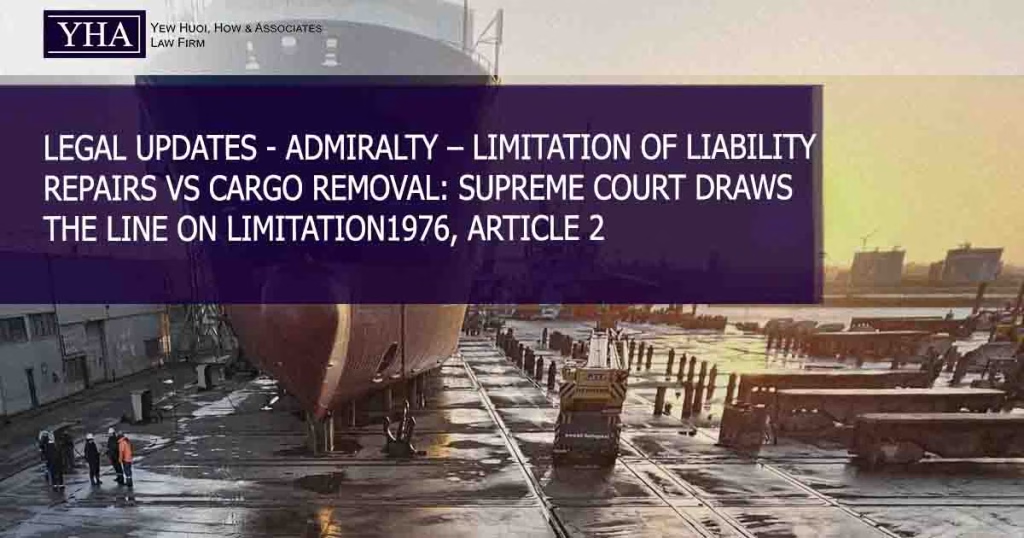1. Summary and Facts
MSC Mediterranean Shipping CO SA v Conti 11 Container Schiffahrts-GMBH & CO KG MS (The “MSC Flaminia”) [2025] 2 Lloyd’s Rep 150 concerns the dispute followed the MSC Flaminia vessel’s explosion in July 2012, which caused severe damage to the vessel and cargo. The shipowner, Conti, recovered around US$200 million in arbitration against the charterer, MSC, for breach of charter. MSC then sought to limit its liability under the 1976 Limitation Convention by establishing a limitation fund. In 2024, the Court of Appeal dismissed MSC’s appeal, holding that article 2 of the Convention does not extend to claims brought by a shipowner against a charterer for the owner’s own losses. MSC appealed to the Supreme Court.
2. Legal Issues
• Whether there is a further and wider principle that there is no right for a charterer to limit its liability in respect of claims by a shipowner for losses originally suffered by it.
• Whether the claims made by the shipowner fall within Article 2.1 of the 1976 Convention and, if so, whether the fact that they result from damage to the vessel means that there is no right to limit.
3. Court’s Findings
• The court ruled in favor of the MSC Mediterranean charterer.
• Issue 1: A charterer can limit its liability for claims by an owner, including in respect of losses originally suffered by the owner itself under the 1976 Convention. “Claims” in Article 2 of the LLMC 1976 covers all those listed, regardless of whether made by owners, charterers, or third parties.
• Issue 2: MSC is only entitled to limitation rights under Article 2.1(e) of the Convention in respect of the costs of discharging and decontaminating cargo, while the remaining claims were regarded as vessel repair costs and therefore not subject to limitation.
4. Practical Implications
This judgment has clarified the blur lines between the limitation right available to the charterers under the 1976 Convention:
• Charterers are deemed as an insider just like owner, they may invoke limitation rights under the Convention, even when facing claims directly from shipowners.
• Under the English law, neither the 1976 Convention as a whole nor Article 2 specifically is to be interpreted broadly or liberally, and the Vienna Convention provides no basis for such an expansive construction.
• Articles 9 and 11 of the Convention safeguard the limitation fund for third-party claimants, ensuring that owner–charterer disputes cannot deplete it at the expense of outsiders.
The ruling shows the need for careful distinction between cargo-related and vessel-related claims, as this will determine whether limitation applies.

